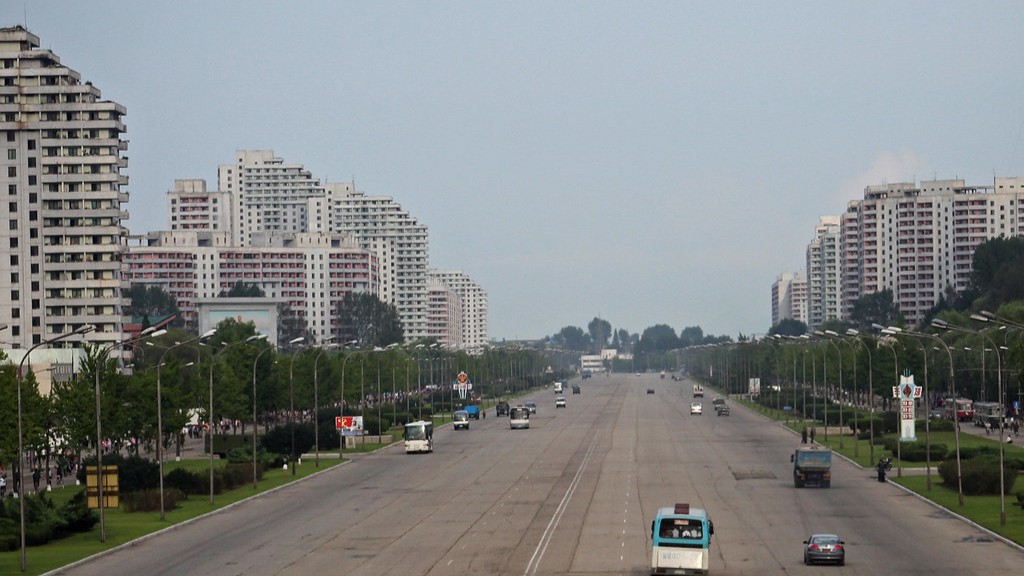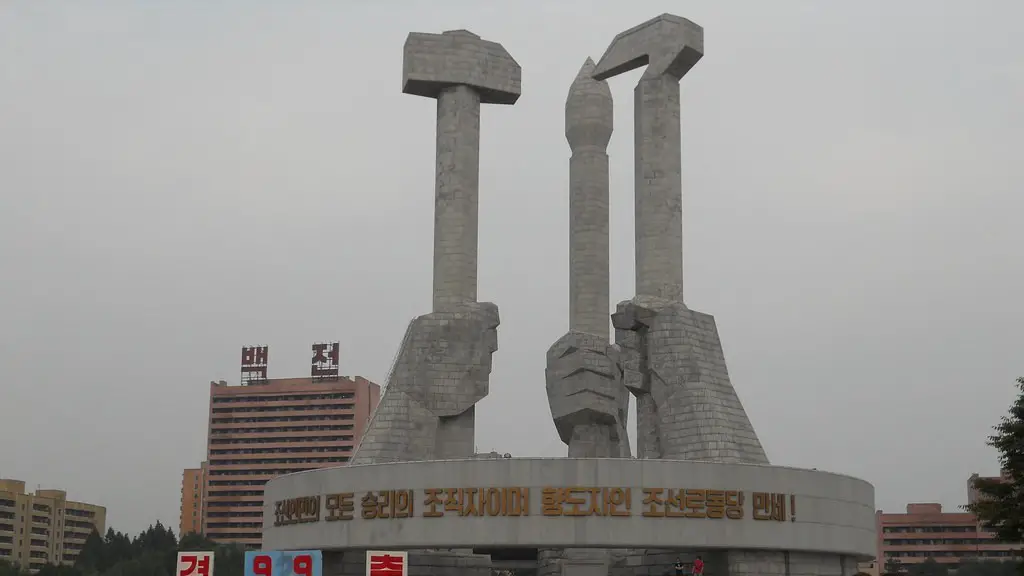Background Information
North Korea’s nuclear and missile programmes have become a cause for serious concern in recent years. Since 2006, the country has conducted five nuclear tests and numerous missile tests. It is widely believed that North Korea is attempting to develop an intercontinental ballistic missile (ICBM) capable of delivering a nuclear warhead to targets in the continental United States. The motives behind this apparent drive for nuclear weapons remain the subject of much debate.
Relevant Data
In 2018, North Korea reportedly tested 12 missiles and conducted nuclear detonation experiments. These tests have apparently been successful and North Korea has declared its possession of ballistic missiles capable of reaching the mainland United States. Estimates suggest that North Korea has between 20 and 60 nuclear warheads, and the capability to produce fissile material for more warheads.
Perspectives from Experts
Experts believe that North Korea’s pursuit of nuclear weapons reflects the country’s deep-seated mistrust of the United States and its regional neighbours, particularly South Korea and Japan. The North Korean regime sees nuclear weapons as a means of guaranteeing the country’s security and is determined to prevent any form of outside interference in its affairs.
Other experts have argued that North Korea’s nuclear weapons programme is primarily a bargaining chip. They suggest that the programme is designed to extract rewards from the international community in exchange for limiting or halting its nuclear activities.
Analysis
It is clear that North Korea seeks nuclear weapons for a variety of reasons. These include securing the regime’s own survival, deterring outside interference and using the programme as a bargaining chip. These motivations are likely to remain in place for the foreseeable future and suggest that the North Korean nuclear issue is unlikely to be resolved in the short term.
Domestic Implications
North Korea’s pursuit of nuclear weapons has had an impact on the country’s domestic politics. The acquisition of nuclear weapons has strengthened the North Korean regime and given it a powerful tool through which it can maintain its grip on power. In addition, the pursuit of nuclear weapons has diverted resources away from other areas, such as healthcare and education, leading to a reduction in the country’s overall standard of living.
International Reactions
The international community has responded to North Korea’s nuclear programme with a mixture of concern and outrage. The US and its allies have imposed economic sanctions on the country in an effort to force it to abandon its nuclear ambitions. However, these efforts have thus far been unsuccessful, with North Korea continuing to pursue its nuclear ambitions despite international opposition.
Containment Efforts
The international community has also sought to contain the spread of North Korea’s nuclear weapons programme. Various countries have sought to limit the export of technology and materials which could be used to develop a North Korean nuclear weapons programme. In addition, the US and its allies have sought to prevent North Korea from trading in nuclear-related materials, such as uranium and plutonium, on the global market.
Regional Security Challenges
North Korea’s pursuit of nuclear weapons poses a significant security challenge to the region. The prospect of a nuclear-armed North Korea has raised tensions in the region, particularly between North Korea and South Korea. North Korea’s nuclear weapons programme has also caused concerns among its neighbours, who fear that the country’s nuclear ambitions could spark an arms race in the region.
Military Posturing
The US and its allies have responded to North Korea’s nuclear programme by strengthening their own military forces in the region. The US has deployed additional missile defence systems to South Korea and has conducted joint military exercises with its allies in the region. These moves have been intended to demonstrate the US’s commitment to its allies in the face of rising tensions and to serve as a deterrent to North Korea.
Prospects and Possibilities
It is unclear how long North Korea will continue to pursue its nuclear ambitions. However, it is likely that the regime will remain committed to its nuclear programme in the near future, as it sees nuclear weapons as essential to its security. For the foreseeable future, the international community will continue to grapple with the challenge posed by North Korea’s nuclear programme.


